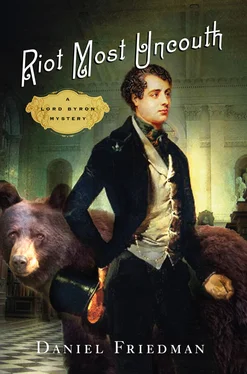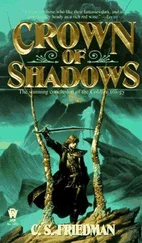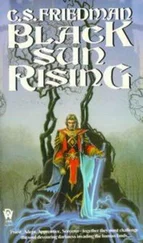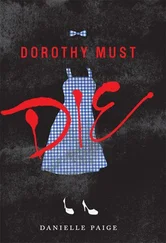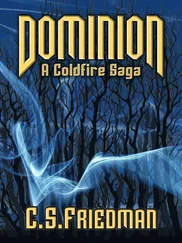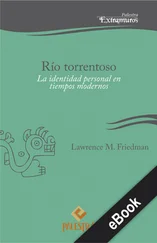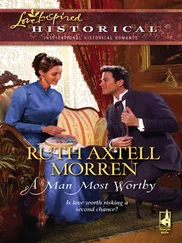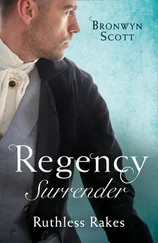Daniel Friedman - Riot Most Uncouth
Здесь есть возможность читать онлайн «Daniel Friedman - Riot Most Uncouth» весь текст электронной книги совершенно бесплатно (целиком полную версию без сокращений). В некоторых случаях можно слушать аудио, скачать через торрент в формате fb2 и присутствует краткое содержание. Год выпуска: 0101, ISBN: 0101, Издательство: St. Martin, Жанр: Исторический детектив, на английском языке. Описание произведения, (предисловие) а так же отзывы посетителей доступны на портале библиотеки ЛибКат.
- Название:Riot Most Uncouth
- Автор:
- Издательство:St. Martin
- Жанр:
- Год:0101
- ISBN:9781250027580
- Рейтинг книги:5 / 5. Голосов: 1
-
Избранное:Добавить в избранное
- Отзывы:
-
Ваша оценка:
- 100
- 1
- 2
- 3
- 4
- 5
Riot Most Uncouth: краткое содержание, описание и аннотация
Предлагаем к чтению аннотацию, описание, краткое содержание или предисловие (зависит от того, что написал сам автор книги «Riot Most Uncouth»). Если вы не нашли необходимую информацию о книге — напишите в комментариях, мы постараемся отыскать её.
Riot Most Uncouth — читать онлайн бесплатно полную книгу (весь текст) целиком
Ниже представлен текст книги, разбитый по страницам. Система сохранения места последней прочитанной страницы, позволяет с удобством читать онлайн бесплатно книгу «Riot Most Uncouth», без необходимости каждый раз заново искать на чём Вы остановились. Поставьте закладку, и сможете в любой момент перейти на страницу, на которой закончили чтение.
Интервал:
Закладка:
Britain had become, therefore, a nation of pimps, as the new rich, like Sedgewyck’s family, awash with cash but lacking respectability, sought to wed their daughters and their fortunes to hereditary titles. The old aristocracy, meanwhile, bartered its sons for the funds to continue in the lifestyles its members considered their birthrights.
My own marriage had been untainted by parental depredations; my wife’s darling mother hated me so much that she had written the Prince Regent for a special permission to prevent her daughter from taking my name. Her dislike was entirely unjustified, as I was quite the ideal husband, unless one was so crass as to take issue with my state of financial disarray or my constant drunkenness or my habitual adultery.
But my trespasses were entirely forgivable, given my wife’s coldness, her obnoxious rectitude, and her inability to sate my lusts. Our attraction had been based, on both sides, upon a myth of romantic transformation; she thought she could redeem me, and I believed I could corrupt her. We’d both been wrong.
Olivia’s steward guided me through the entryway, down a short hallway, through a well-appointed library, and to a set of glass doors that opened upon a lush interior courtyard. Though the little garden was probably shaded for much of the day, the area was evenly carpeted by healthy grass, and the cascading flower beds along the perimeter of the space were remarkable for the color and variety of their foliage. Many of these plants, I knew, were quite fragile and challenging to cultivate, and I added a master gardener to my mental tally of the house staff.
At the center of this idyllic space sat a small wicker table and two chairs; furniture light enough that it would not bruise the sod. A lady’s silk scarf lay on the grass, and a book rested on the table, open, with the spine up. I smiled; Olivia had been sitting out here when I arrived, and she fled inside when she’d heard I was at the door. I wondered if she had gone to put her face together, or if she’d merely left so I’d have to wait for her to receive me.
I picked up the novel. It was a recent bestseller, beloved by women; one I hadn’t had the time or inclination to read. It was called Pride and Prejudice, and the author was named only as “a lady.” I flipped to the front, intentionally losing Olivia’s place in it, and I perused the first page:
It is a truth universally acknowledged, that a single man in possession of a good fortune, must be in want of a wife.
“Perhaps he’ll take mine,” I said to myself.
“Do you need something, sir?” asked the steward, who had overheard me.
“I was only reading.” I pitched the novel onto the ground. “Where is Olivia?”
“She’ll be out presently. I’m sure she apologizes most sincerely for the delay. May I offer you a cup of tea?”
“I’ll take whisky, if you’ve got any,” I said.
But she left me sitting for nearly half an hour, long enough for me to drink three generous glasses of well-aged Scotch and start on a fourth. At some point, I retrieved Pride and Prejudice from the grass and leafed through it. Olivia appeared, eventually, looking quite radiant, though, at the age of twenty-six, the flower of her youth had long since withered.
“Lord Byron,” she said. “It has been some time since I’ve seen you.”
I rose from my seat. “Nine years.”
“I apologize for making you wait. It was quite unavoidable,” she said without actually seeming the least bit sorry.
“It’s quite all right. I’ve found something to read.”
“Oh, that.” She took the book from me, gently brushed the dirt from its cover, and set it back on the little table. “It’s been very popular in London, though I suppose it’s hardly the equal of Childe Harold’s Pilgrimage. ”
“You didn’t write it, did you?”
“Hardly. Though the author is a friend of my family. A sweet, sweet woman. What is your expert’s literary assessment of its merits?”
“There’s nothing wrong with that woman that I couldn’t fix in ten minutes, with my prick,” I said. I suppose I’d meant to shock or offend her, for I was annoyed by the long delay, though her courtyard was a nice enough place to sit.
She merely laughed at me. “Perhaps your reparative efforts would be better directed toward Lady Byron.”
“I fear, alas, that what’s broken in that one is hopelessly unsalvageable.”
Olivia leaned toward me and touched my knee with her fingertips. “I’ve heard rumors about you. Are they true?”
I pulled myself away from her touch and, piqued, swept the book back onto the ground with my forearm. “Some of them are. And the rest of them might as well be, once they’ve been whispered in every ear in London. What drugs and promiscuity and rampant spending could never do to me, marriage has done in but a single year. I am ruined. I’m fleeing England, forever.”
“So why have you come here?”
“I am writing a memoir; my account of the Cambridge murders. I’d like to ask about your recollection of those events.”
“I don’t really know much,” she said. “I’d heard you were arrested, but then you weren’t anymore. And then Mr. Knifing announced the killer was that horrible carpenter, and you left Cambridge shortly after. I thought you’d come calling, after Mr. Sedgewyck’s death. Though I grieved for him, I was, in a way, relieved that I didn’t have to marry him.”
“He probably would have made a fine husband,” I said. “I’m sure he would have tenderly loved your family’s money.”
“How romantic of him.”
“He wasn’t a romantic. I’m a romantic. He was a prudent man. I warned you about prudent men.”
“And I have approached such sensible suitors with caution ever since.”
“Sedgewyck’s death was perhaps the least tragic of the Cambridge killings, though I had little affection for Professor Pendleton or Fielding Dingle.”
“His manner of dealing was heartless and cowardly. But you left me, as well,” said Olivia.
“I did not. You spurned me, and chose Mr. Sedgewyck.”
“You said you loved me, but you never returned, not even to say good-bye.”
“I was arrested.”
“Only briefly.”
“Is that why you never married? Out of devotion to me?”
She laughed again. “I wouldn’t call it devotion, though being perceived as Byron’s leavings has been no great help to my prospects. However, the chief reason I have never married was that I never found anyone suitable.”
“Surely you’ve had many proposals.” I knew a number of eligible barons and at least one marquess who would have thought Olivia’s countenance entirely acceptable, despite her age, and they’d have found her wealth quite compelling.
“The last time I saw you, you presented me with a dichotomy, a choice between the passionate lover and the prudent suitor. You and Mr. Sedgewyck gave me an object lesson in the failings of both sorts of men. I do not like being viewed the way Sedgewyck saw me; as a chattel-as a piece in some game. But you gave me little reason to hold out hope for romantic love, Lord Byron. You turned so cold, so fast, and you abandoned me.”
I didn’t need to tell her that I was abandoned first. I said, “I was never dishonest about what I had to offer you.”
“You’d carry your love in your insect heart, to cliffsides and mountains and minarets. I remember what you offered. You weren’t dishonest. You were only selfish. I have never married because I require an unselfish man, and I have yet to meet one.”
“You must be very lonely.”
Her brow knit: “Men of inadequate character make for poor company. I am quite content with my business and my books.”
Читать дальшеИнтервал:
Закладка:
Похожие книги на «Riot Most Uncouth»
Представляем Вашему вниманию похожие книги на «Riot Most Uncouth» списком для выбора. Мы отобрали схожую по названию и смыслу литературу в надежде предоставить читателям больше вариантов отыскать новые, интересные, ещё непрочитанные произведения.
Обсуждение, отзывы о книге «Riot Most Uncouth» и просто собственные мнения читателей. Оставьте ваши комментарии, напишите, что Вы думаете о произведении, его смысле или главных героях. Укажите что конкретно понравилось, а что нет, и почему Вы так считаете.
